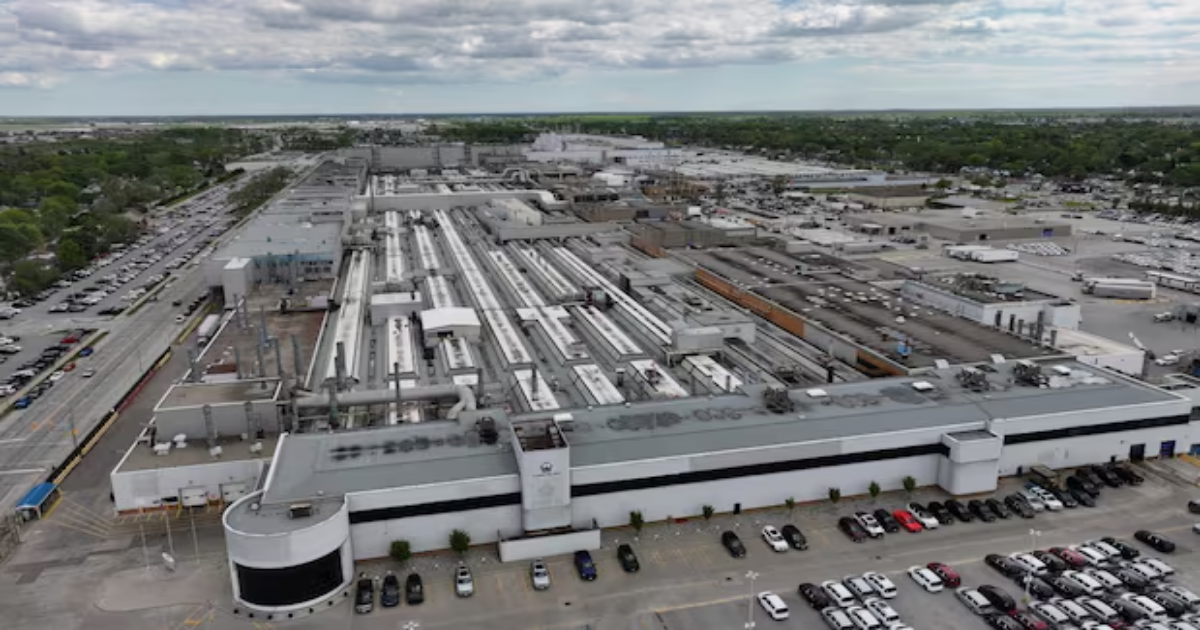Automaker Stellantis confirms it’s shutting down its assembly plant in Windsor, Ont., for two weeks, largely because of U.S. tariffs on imported vehicles.
Company spokesperson LouAnn Gosselin says they’re “temporarily pausing production” starting Monday, with operations set to resume the week of April 21.
“Stellantis continues to assess the effects of the recently announced U.S. tariffs on imported vehicles and will continue to engage with the U.S. administration on these policy changes,” she said in an emailed statement to CBC News.
New parked vehicles are shown from above at the Stellantis Windsor assembly plant. (Patrick Morrell/CBC)
Unifor Local 444 estimates roughly 4,500 people work in various jobs and trades at the Canadian border city factory where the Chrysler Pacifica minivan, Chrysler Grand Caravan and Dodge Charger Daytona are made. However, Gosselin says roughly 3,200 people in Canada will be impacted by the decision.
“Immediate actions we must take include temporarily pausing production at some of our Canadian and Mexican assembly plants, which will have an impact to several of our U.S. powertrain and stamping facilities that support those operations,” the statement added.
Stellantis, maker of Ram trucks and Jeeps, also said on Thursday it was temporarily laying off 900 workers at five U.S. facilities because of the tariffs.
Unifor Local 444 first announced the Windsor shut down Wednesday night in a social media post, saying more changes to the schedule were “expected in the coming weeks.”
“While we had heard rumours of potential downtime, the company said there are multiple factors at play, with the primary driver behind the final decision being this afternoon’s announcement from U.S. President Donald Trump of the U.S. tariffs,” the union said in Facebook post.
“This has and continues to create uncertainty across the entire auto industry. This is not just affecting our plant—it’s impacting facilities in the U.S. and Mexico as well.”

A 2018 file photo of employees entering the Windsor, Ont., Stellantis assembly plant, then known as Chrysler. (Floriane Bonneville/Radio-Canada)
Earlier on Wednesday, Trump announced sweeping tariffs on a wide range of countries. While Canada was spared from any new tariffs, automotive tariffs announced by the president last week came into force Thursday.
Those 25 per cent tariffs are expected to apply to the value of the non-American content in the vehicles. However, parts imported under the Canada-United States-Mexico Agreement (CUSMA) are expected to remain tariff-free, for now.
